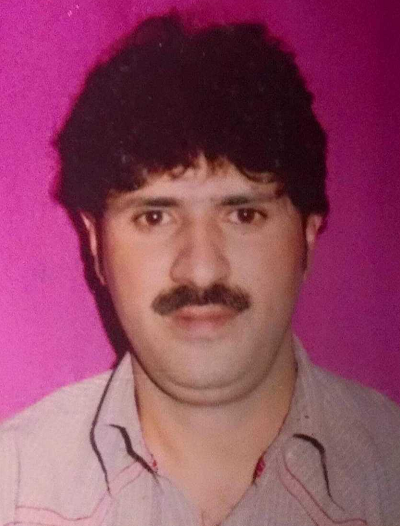Medical errors can be defined as the failure of a planned action to be completed as intended or the use of a wrong plan to achieve an aim. Among the problems that commonly occur during providing health care are adverse (no or sentinel events leading to disability or death through improper interventions, decision making, validation-privilege related issues, during course of management dominate the major causes). Despite the commandment “primum non Nocera” (first do no harm in medical practice) injuries or complications through disabilities and deaths are being inflicted on the patients due to violations of patient’s safety norms (negligence) and the magnitude of such losses and suffering is appalling .
Medical negligence is also termed as medical malpractice that is an improper, unskilled, or negligent treatment of the patients by their healthcare providers. The bad reputation brought to Nobility of Medicine by some corrupt and criminal elements has put whole Medicine in bad reputation. There is no denying that medical profession is doing a tremendous job in alleviating the pain of sufferers, a skilful doctor can make their patient feel comfortable enough to welcome it fighting the disease and death. They restore smiles on millions of faces, where possible, yet many remain untouched by the empathy of healing touch of helping hands.
Coverage of the profession, duties, ethics, and enlightened defense – A Medico legal perspective
A patient approaching a doctor expects medical treatment with all the requisite knowledge and skill a doctor acquired through the professional Qualifications or privileges (permissions) granted to perform different types of interventions. Professional’s competence (skills) must be validated by a competent professional body only then certain privileges are granted for Physicians to implement that knowledge in the best interest of patient. Such privileges are recorded in privilege record (logbook) of all doctors. A doctor owes certain duties to his /her patient and a breach of any of these duties gives a cause of action for negligence against the doctor. The relationship takes the shape of a contract retaining the essential elements of tort. Undoubtedly, a doctor has a duty to obtain prior informed consent for the plan of care from the patient explained in the language best known to patient or the legal guardian (all is recorded and witnessed) before carrying out diagnostic tests and therapeutic management but legally no consent is insurance or excuse for indulging into Medical Negligence.
Nearly 5,200,000 medical errors happen every year, due to medical negligence were reported in India in 2020. An error is an error but invariably the sufferer is the patient who takes the course of treatment or follows the medical therapy or takes the prescribed medicines inadvertently to pay the price, occasionally with his life too. In 1999, the Institute of Medicine published a landmark report, “To Err is Human”. The report’s authors estimated that up to 98,000 people in the U.S. die every year because of medical errors and called for a national patient safety movement comparable, that would make medical errors the third leading cause of death, comparable to having three jumbo jets filled with patients crash every two days. These frightening numbers have been known by medical researchers for at least a decade. If aviation has such mishaps in real time all the airlines shall be grounded till safety is ensured but Medicine continues to practice within unsafe environment. The startling conclusion from the IOM report is how easy it would be to correct many of the fatal errors, has now put its authority behind specific corrective measures. In response, the State administration issued an executive order mandating that Government health agencies implement QPS strategies for reducing medical errors.
The true incidence of medical errors or the resultant morbidity mortality due to negligence of care providers is exactly not known in our UT of JK as no centralized cases registry on negligence or malpractice reports are shared with public. Medical negligence nowadays has become one of the serious issues with UT of JK. Almost every week a video alleging medical negligence surfaces on social media. In one recent case we saw even some action like closing of operation facility by DHSK pending conclusive inquiry report. All inquiries need fair hearing, transparency, professional conducted RCA -root cause analysis to represent both sides as there is much rumor mongering and gossip generated around such cases. We need strict accountability for prevention of medical negligence & implementation of ESR- Essential safety requirements in our healthcare system. Who is doing what, in or outside operating table? appears free for all affair with almost nonexistence of officially designated supervisory (regulatory) body hence true occurrences of alleged cases of medical negligence is left for an imagination and sadly all this is preventable.
High error rates with serious consequences are most likely to occur in high dependency units, operating rooms, and emergency departments but Kashmir’s medical history has not many examples to quote when negligent care providers/hospitals being punished of inflicting harm due to “medical negligence”. This is significant for reclaiming lost trust in Medicine and encourages good hard working dedicated doctors. Our experience tells us that medical profession is one of the noblest professions. Patients usually see the doctors as Godmen as it is them who are going to treat their illness, health issues and in the end, they will be cured and healed by them, and we at least expect them to be careful while discharging their duties toward their patients. Michael Millenson, author of a recent book on medical quality, points out that ”the number one cause of medical mistakes is not incompetence but confusion, an unempathetic attitude.” He says that most treatment-related errors are caused by poorly designed systems that lack ”safeguards to protect against anything less than human perfection.” The institute report calls for the federal government to help hospitals borrow good ideas that catch mistakes before they cause serious harm. That way hospital care might become as injury-free as airline travel.
(To be continued…)
(The Author is Senior Surgeon & Certified Quality Professional (Specialist) in Healthcare Policy planning & Quality improvement in Healthcare. He is also Chairperson, Patient family rights & Medical negligence advocacy group. An experienced Clinical auditor and investigator of medical negligence and malpractice cases. He can be reached at: [email protected]








